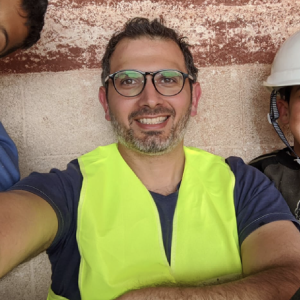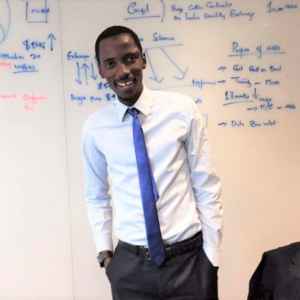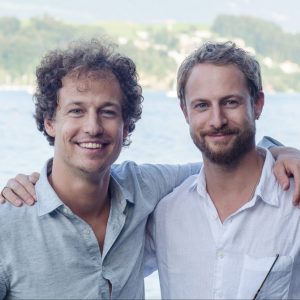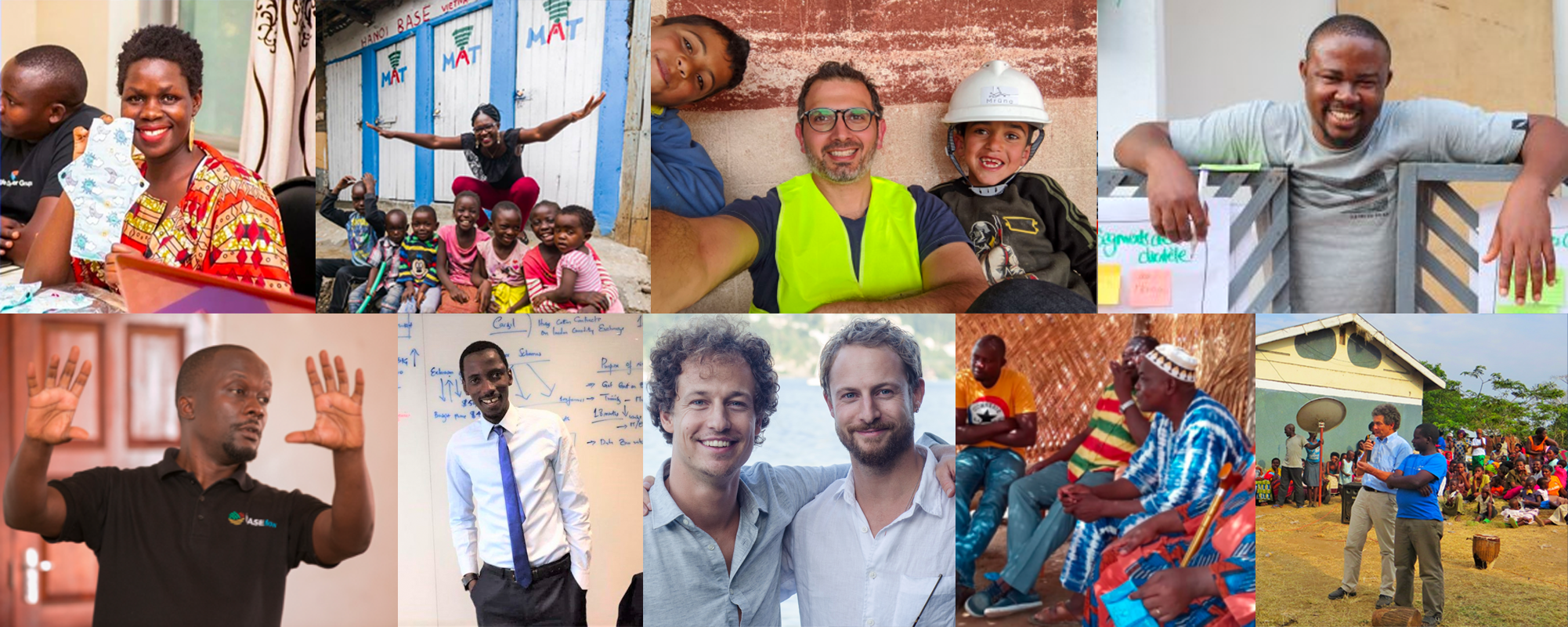 In this interview series, we talk with some of the inspiring WASH entrepreneurs in our community. They tell us about their innovation and how they brought it to market, what drives them as a social entrepreneur, the context in which they work and the challenges and successes they encountered on their path from ideation to scale-up. Some truly uplifting life and business stories, have a read!
In this interview series, we talk with some of the inspiring WASH entrepreneurs in our community. They tell us about their innovation and how they brought it to market, what drives them as a social entrepreneur, the context in which they work and the challenges and successes they encountered on their path from ideation to scale-up. Some truly uplifting life and business stories, have a read!
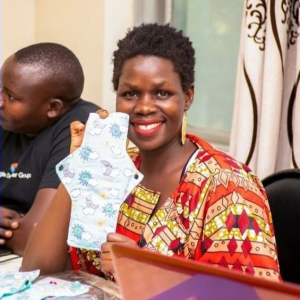 “I want to see all girls have no worries about period poverty anymore”
“I want to see all girls have no worries about period poverty anymore”
Growing up as a teenage girl, Bernadette mostly used toilet paper to manage her period. Not an uncommon situation in Uganda where every one in four teenage girls drops out of school once they begin menstruating for lack of access to menstrual hygiene products. Today, Bernadette is the proud founder and CEO of WABIBI Pads, a social business that has locally produced and distributed over 50,000 packs of sustainable reusable sanitary cloth pads. Bernadette also trains girls and women to make their own reusable sanitary pads and educates them about menstrual hygiene management. Read her inspiring story below. Read the story!
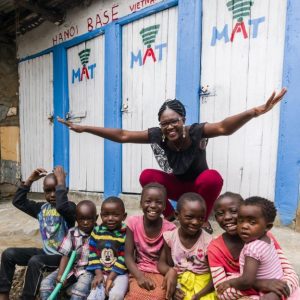
Waterproof ultrasonic sensors to tackle overflowing latrines in urban slums
In many urban slums of Kenya, the provision of latrines is inadequate, desludging unpredictable and human waste ends up in the environment. Joyce Klu decided to tackle the problem by retrofitting latrines with sensors. Her social business, incubated by Young Water Solutions and cewas, is currently focusing on improving the sanitation facilities in schools in the Korogocho slum in Nairobi, with the support of Toilets for All. Read the story
Decentralised Nature-Based Waste Water Treatment as a Solution to the Acute Water and Sanitation Crisis
In many countries, traditional waste water treatment infrastructures remain highly inefficient. The systems are centralised with kilometers of sewer pipes that are difficult to maintain and a network that is challenging to service and does not reach poorer suburbs and informal settlements. Ziad Hussami, a Lebanese social entrepreneur, decided to propose a new system: a decentralised network of remotely monitored nature-based waste water treatment facilities. He has implemented his product in various areas of Lebanon and the United Arab Emirates and is currently working with UNICEF to propose a solution that can be rapidly deployed to disaster zones and be used in refugee settlements. Mrüna is supported by our member cewas. Read the story
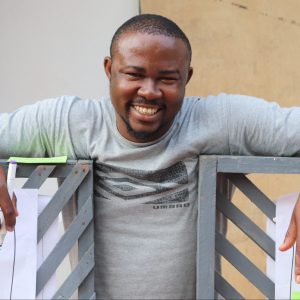 Oklin Kone : « Une grande partie de la population s’expose à des morsures et des maladies en allant faire ses besoins. Nous voulons changer cette situation ! »
Oklin Kone : « Une grande partie de la population s’expose à des morsures et des maladies en allant faire ses besoins. Nous voulons changer cette situation ! »
Avant de lancer sa propre entreprise sociale, Oklin Kone a travaillé durant plusieurs années pour une ONG active dans le domaine de la santé au niveau mondial. Profondément touché par les conditions sanitaires qu’il a rencontrées dans le nord de son pays, la Côte d’Ivoire, Oklin a décidé de passer à l’action en montant son propre business de production et d’installation de toilettes sur mesure. Une initiative qui s’inscrit pleinement dans l’économie d’assainissement circulaire, puisque que Kline_Business collecte et revalorise également les déchets humains. Son entreprise est encore jeune, mais le projet pilote mis en place dans la région de Tchôlogo est déjà un véritable succès. Read the story
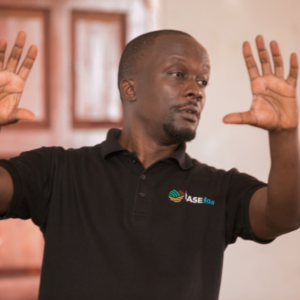 Baseflow : « Drilling boreholes is easy…keeping the water flowing is the hard part ! »
Baseflow : « Drilling boreholes is easy…keeping the water flowing is the hard part ! »
Muthi Nhlema has spent most of his working life in Malawi’s development sector. Bothered by the lack of urgency around certain practices and outcomes in the field and the cases of “cosmetic charity” he witnessed, he created his own social business BASEflow in 2017. He wanted it to be the organisation that is brave enough to tell the truth and that finds real solutions for the water sector. BASEflow’s current work focuses on addressing the lack of sustainability of groundwater supply in Malawi, notably by tracking and tracing the causes of non-functionality of boreholes, a project supported by Toilets For All. Read the story
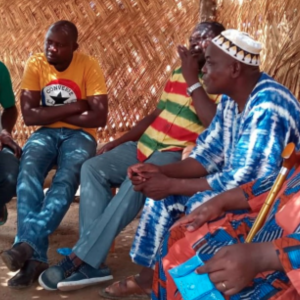
BILADA : Démocratiser l’accès à l’eau potable au Burkina Faso
Lorsqu’il a lancé l’association BILADA, Hamed Arthur Yo avait un rêve : rendre l’eau potable accessible à large échelle au Burkina Faso. Dans ce pays, la majorité de la population n’a pas d’accès privilégié au réseau d’eau potable et continue à recourir à des sources d’eau souillées. Pour ce jeune biochimiste et microbiologiste, la solution est simple pourtant: il faut produire et distribuer du chlore (qui reste un des moyens les plus efficaces et peu coûteux pour purifier l’eau) localement. BILADA a reçu le soutien de la Fondation Antenna et de la technologie WATA et distribue aujourd’hui sa solution chlorée dans tout le Burkina Faso. Read the story
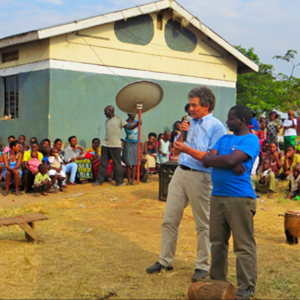 Fontes: Keep the water flowing in a crisis zone
Fontes: Keep the water flowing in a crisis zone
Fontes started to work in Goma, in the Democratic Republic of the Congo, after the 2002 volcanic eruption and has stayed on during the many years of political instability and conflict that have shaken the DRC. It’s hard to imagine a more difficult setting to start a social business that provides safe water. And yet, despite all the challenges, Fontes, together with the local company Yme Jibu and the support of the Swiss Bluetec Bridge, has managed to continuously expand their water scheme in Goma. Read the story
Mwila Lando: ” I realised how big a challenge sanitation was and I wanted to find a solution.”
When Mwila Lando started as a social entrepreneur, he was more concerned with farming than sanitation…until he came face to face with the run-down and unclean toilets in public markets in peri-urban areas of Lusaka. He suddenly realised how big a challenge sanitation was and has since made it his mission to provide clean, safe and affordable toilet and shower facilities. Starting a business in the sanitation sector in Zambia has not been without its challenges, but Live Clean has by now successfully installed several toilet and shower containers across Zambia. Read the story
Tap water consumption in Switzerland funds WASH projects in Africa
Giving tap water a value in restaurants and enterprises in Switzerland and using the funds collected to support WASH projects in lower-income countries. This is the innovative financing model developed by Lior and Morris Etter, the founders of WASSER FÜR WASSER (WfW). Their approach has a double benefit: in Zambia and Mozambique, water access is improved and in Switzerland – where tap water is perfectly safe to drink – the use of plastic bottles is reduced. We asked Lior and Morris a few questions. Also check out their recently released documentary. Read the story

